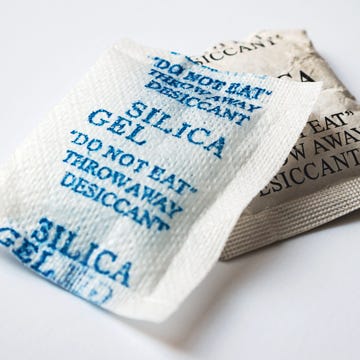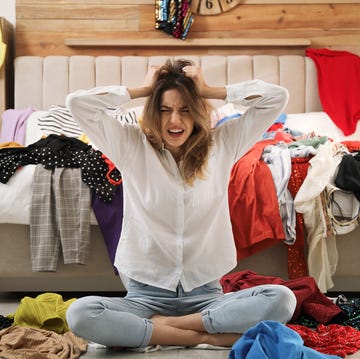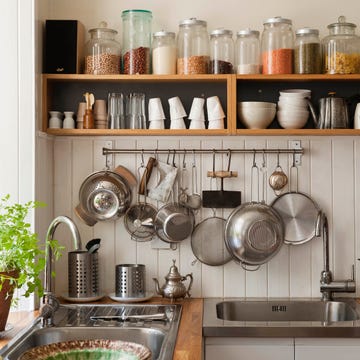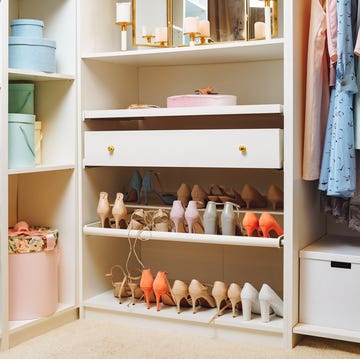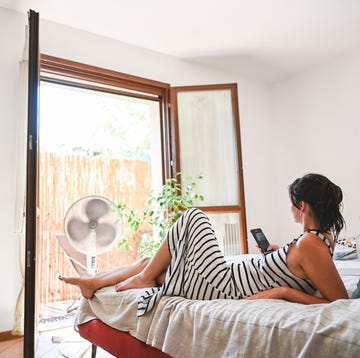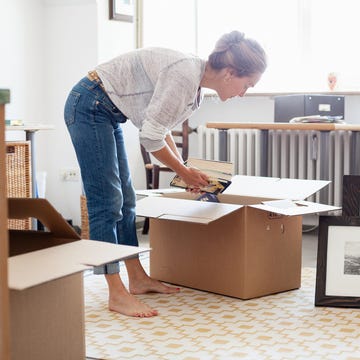Having trouble staying organised at home? We hate to break it to you, but it might be you (not your stuff) that's the problem. We asked professional organisers to reveal common decluttering missteps they often see tripping up people's best intentions.
1. "If I'm not organised, I must be doing everything wrong."
"When I'm working with a client, I always start by looking for what's going right," says Jeni Aron (aka the Clutter Cowgirl). "People often already have systems in place, but don't realise it." Jeni says this could be as obvious as using your closet's hangers, or owning a hook for your keys. Noticing how you already operate in your home is a good way to start tweaking how you keep organised. "Organising doesn't have to be an orchestra of scientific systems." says Jeni.
2. "The solution to decluttering is buying lots of bins and boxes."
"Buying stuff does not equal being organised," says Maeve Richmond, founder of the organising coaching service Maeve's Method. "When you get that plastic tub home, it isn't going to tell you what to do. People don't want to admit that emotions will come up, but you have to face your clutter and make decisions about it to really move through roadblocks."
What to read next
It's also much more practical to take stock of your stuff (and start paring it down), before you head to The Container Store:
"You don't really know what sort of system you need until you know how much stuff you're keeping," says Jeni.
3. "I don't need a clear space to start organising."
It might seem daunting, but you really need to go through everything and start with a blank slate to build better habits and take stock of what you own.
"Don't attempt to organise without clearing out the space first," says Amelia Meena, personal organiser and founder of Appleshine. "People don't trust themselves to take everything apart to help declutter, but you need to deconstruct to reconstruct."
4. "I can't get rid of anything that was given to me as a gift."
"Interestingly enough, it's just as hard for us to get rid of free stuff, as it is to get rid of expensive stuff," says Amelia. "But if someone gave you something you never use (or don't even like!), you should let it go. Recognise that all stuff has an expiration date, and you'll avoid the guilt factor."
5. "Aunt Sheila would love this [insert item you don't want]!"
"Don't displace your clutter to someone else," says Jeni. "First of all, it takes time away from you tackling your own home. Plus, unless you're getting rid of a brand new Coach bag, no one wants your stuff. Don't make your clutter someone else's problem — donate, sell, or throw out things you don't want."
6. "I should devote my entire weekend to organising my whole house."
"That's like saying, 'I want to start running, why don't I start with a marathon?'" says Jeni. She recommends fighting the urge to organise your entire home at once, since you need time to truly consider a smart plan for each space (and you'll probably burn out before you're done).
7. "I need a separate file for every bank statement, doctor's appointment, and receipt. And it should be organised by year. And colour-coded!"
It's tempting to strive for perfection while decluttering, but if you make things too complicated (or too perfect), you might actually erase your good intentions.
"Paper clutter is a major issue, but people tend to over-file," says Jeni. "Day-to-day you don't need a system that is micromanaged. For instance, one file that says 'dental work' that carries over from year to year is totally sufficient. It's not like you need the material at your fingertips every day."
8. "There's one right way to be organised."
Know that it's OK to do things differently if "normal" systems don't work for you.
"If clients get frustrated by putting clothes on hangers, I might suggest we try a pegboard or a system with boxes," says Amelia. "Learn what works for your habits."
9. "Once I get organised, I'll never have to think about it again."
"Face it: Life changes," says Maeve. "It's unrealistic to think that a system created one year will work perfectly the next. The key maintaining your organisation is to remain flexible and be prepared to reevaluate solutions that have broken down."
Originally written Lauren Piro for goodhousekeeping.com
Like this? You'll love...
15 things you'll just GET if your partner is a hoarder
8 smart and stylish outdoor storage solutions
More decluttering advice from Good Housekeeping






